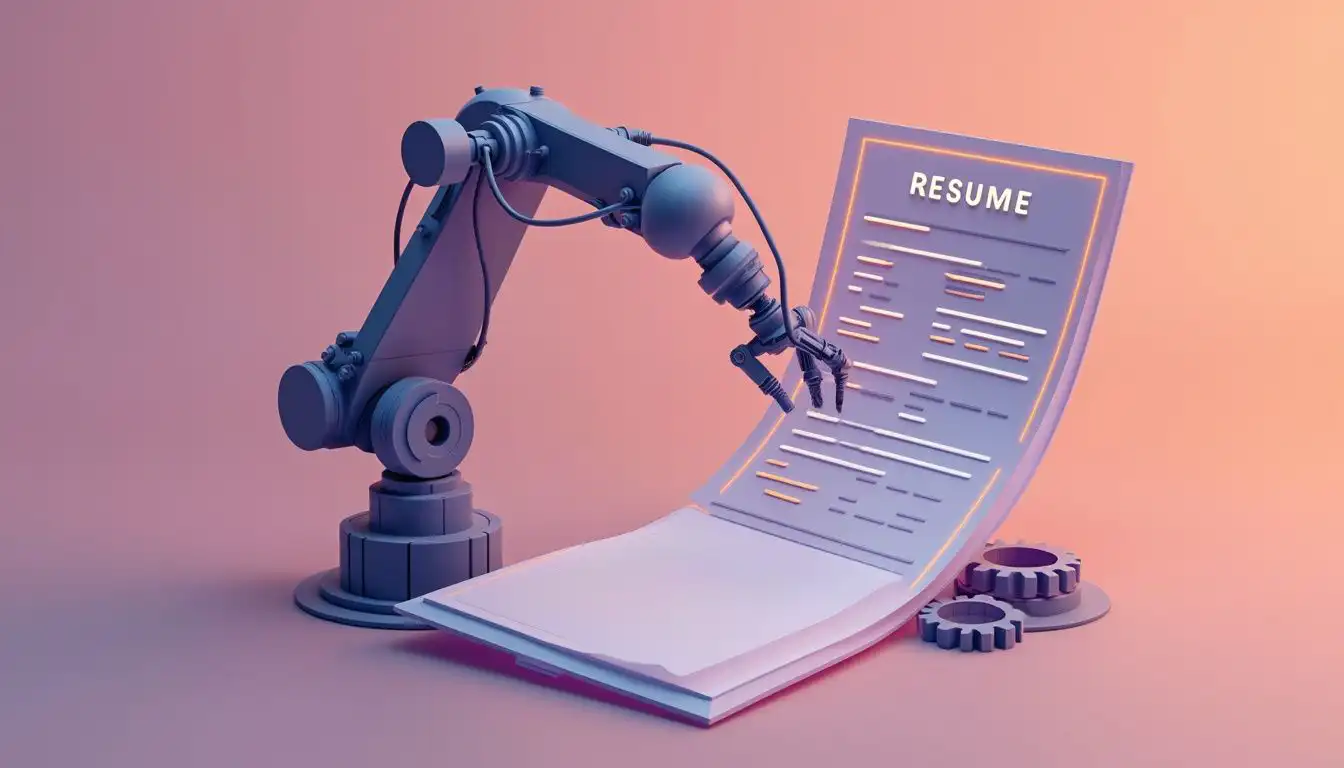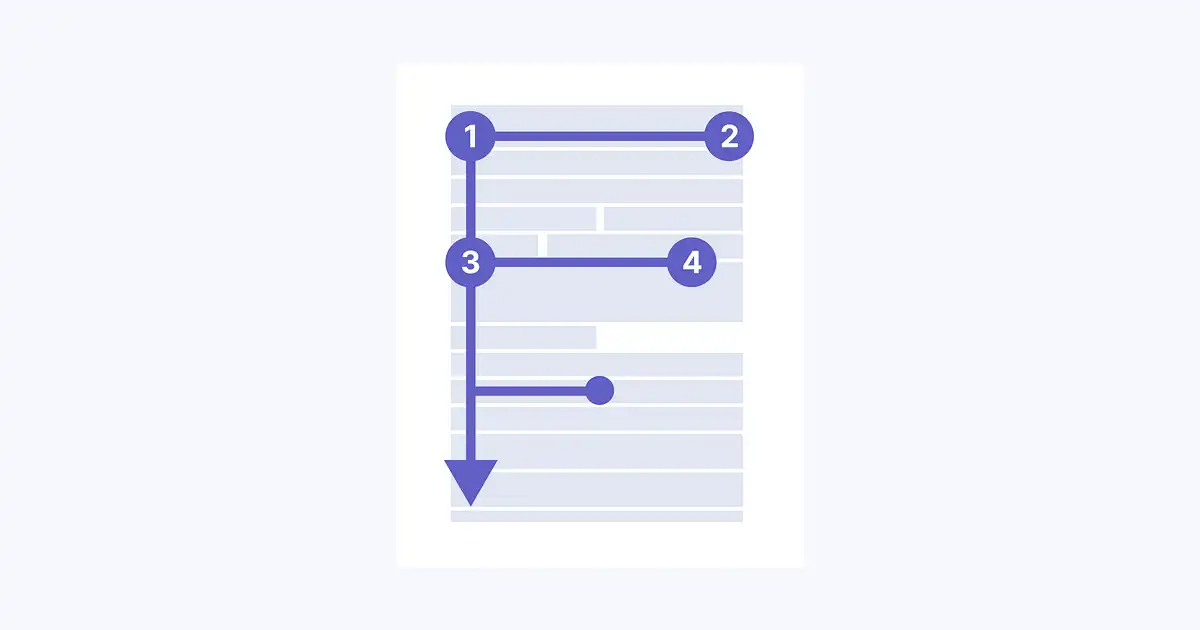 Creating a standout resume is essential in today's AI-driven hiring landscape
Creating a standout resume is essential in today's AI-driven hiring landscape
Getting your resume noticed is harder than ever. Most recruiters only look at each resume for 6-8 seconds. And before a person even sees your resume, it needs to pass through a computer system called ATS (Applicant Tracking System). These systems reject 72% of resumes because of simple formatting mistakes or missing keywords.
Don't worry - we're here to help. This guide shows you exactly how to create a resume that works for both computers and humans. You'll learn:
- How to format your resume so it gets through ATS
- Which keywords to use (and where to put them)
- How to make your resume stand out to recruiters
Ultimate Resume Guide: Stand Out in 2025's Competitive Market
Guide Navigation
- Understanding the Modern Hiring Landscape
- Mastering ATS-Friendly Resume Design
- Strategic Keyword Integration for Maximum Visibility
- Quantifying Achievements to Demonstrate Impact
- Tailoring Your Resume for Precision and Relevance
- Modern Design Trends That Work for Both AI and Humans
- Avoiding Critical Resume Pitfalls
- Leveraging Digital Presence to Complement Your Resume
- Resume Length and Structure Best Practices
- Actionable Steps to Transform Your Resume Today
Understanding the Modern Hiring Landscape
Job hunting has changed a lot since remote work became common. Now, hundreds or even thousands of people apply for each job. Companies use special computer tools to handle all these applications.
Before a person reads your resume, it goes through a computer system (ATS). This system looks for:
- Specific keywords from the job description
- Clean, standard formatting
- Experience that matches what they want
If your resume doesn't have these things, it gets rejected automatically. That's why knowing how to work with ATS is so important for getting interviews.
 Modern ATS systems analyze your resume for keywords, formatting, and relevance to the job description
Modern ATS systems analyze your resume for keywords, formatting, and relevance to the job description
Mastering ATS-Friendly Resume Design
To get past ATS, your resume needs to be easy for computers to read. But it also needs to look good to recruiters. Here's how to do both:
Simple Formatting That Works
Keep It Clean and Simple
A clean, simple resume works best. It's easier for both computers and humans to read. LinkedIn found that simple resumes get 35% more attention than fancy ones.
Using the Right Keywords
ATS looks for specific words to match your resume with the job. Think of these as search terms that help the computer find qualified candidates.
Finding Important Words
Where to Put Keywords
Some parts of your resume are more important than others. Here's where to put keywords for the best results:
Adding Numbers to Show Your Impact
Using numbers in your resume makes your achievements more believable. Resumes with specific numbers get 50% more interviews than those with vague descriptions.
Why Numbers Matter
Ways to Add Numbers
Here are different ways to show your achievements with numbers:
Numbers That Matter in Your Field
Different jobs care about different numbers. Here are the most important ones for each field:
Customizing Your Resume for Each Job
Using the same resume for every job doesn't work anymore. 63% of employers want resumes that match their specific job. When you customize your resume, you're much more likely to get an interview.
How to Customize Your Resume
Smart Ways to Customize
You don't need to write a whole new resume each time:
Making Your Resume Look Good (For Both Computers and People)
Your resume needs to work for two different readers: computer systems and human recruiters. Here's how to make it look good for both.
Design Elements That Work
Keep It Simple and Clean
 Eye-tracking studies reveal recruiters scan resumes in an F-pattern, making strategic content placement crucial
Eye-tracking studies reveal recruiters scan resumes in an F-pattern, making strategic content placement crucial
Common Mistakes to Avoid
Small mistakes can get your resume rejected right away. Here are the most common problems to watch out for.
What Gets Resumes Rejected
Big Mistakes to Watch For
Your Online Presence Matters Too
These days, your resume is just part of the picture. 40% of recruiters look at LinkedIn profiles first, and 35% will Google you. Here's how to make sure your online presence helps you get the job.
Make LinkedIn Work for You
Show Your Work Online
Many jobs want to see examples of your work. Here's where to put them:
How Long Should Your Resume Be?
The right length for your resume depends on how much experience you have. Here's what works best:
Best Resume Length
What Goes Where
Put your most important information where it will get noticed. The order of sections matters based on your situation:
Make Your Resume Better in 7 Days
Tools That Can Help
Common Questions About Resumes
How many pages should my resume be?
If you have less than 10 years of experience, stick to one page. Most hiring managers (72%) prefer this in 2025. Only use two pages if you're applying for senior jobs and have lots of relevant experience to share.
How do I make my resume work for both ATS and people?
Keep it simple and clean:
- Use basic section headings
- Pick common fonts like Arial or Calibri
- Add a little color to headings (keep main text black)
- Skip fancy stuff like tables and text boxes
- Make it easy to scan quickly
How do I show skills from my old job when changing careers?
- Find skills that work in both jobs
- Put these skills at the top of your resume
- Show how you've used these skills in your work
- Use words from the new job's description
- Explain in your summary how your background fits
Should I put my photo on my resume?
Usually no. In the US, UK, and Canada, photos can hurt your chances. They:
- Take up space better used for skills
- Can cause bias
- Often don't work with ATS
Only use a photo if you're in acting/modeling or applying in countries where it's expected (like parts of Europe and Asia).
How do I explain gaps in my work history?
Be honest but focus on what you learned or did during the gap:
- List any freelance work or volunteering
- Show any classes or certifications you got
- For personal reasons (like health or family), briefly mention it in your cover letter
- Use years instead of months to make gaps less obvious
- Focus on skills you kept using or learned
When should I update my resume?
Even when you're not job hunting:
- Add new achievements every 3 months
- Update your skills when you learn something new
- Keep track of your successes while they're fresh
When actively job hunting, adjust your resume for each job you apply to.
Wrap-Up: Making Your Resume Work in 2025
To get interviews in today's job market, your resume needs to work for both computer systems and human recruiters. Follow these tips to succeed:
- Make it ATS-friendly with clean formatting and the right keywords
- Use numbers to show your achievements
- Match each resume to the specific job
- Keep it clear and easy to read
Think of your resume as more than just a list of jobs. It's your way to show companies exactly how you can help them. Every part of it should prove why you're the right person for the job.
Keep improving your resume over time. Test what works, get feedback, and make it better. The more you refine it, the better your chances of landing interviews.
Start using these tips today and watch more companies call you for interviews.